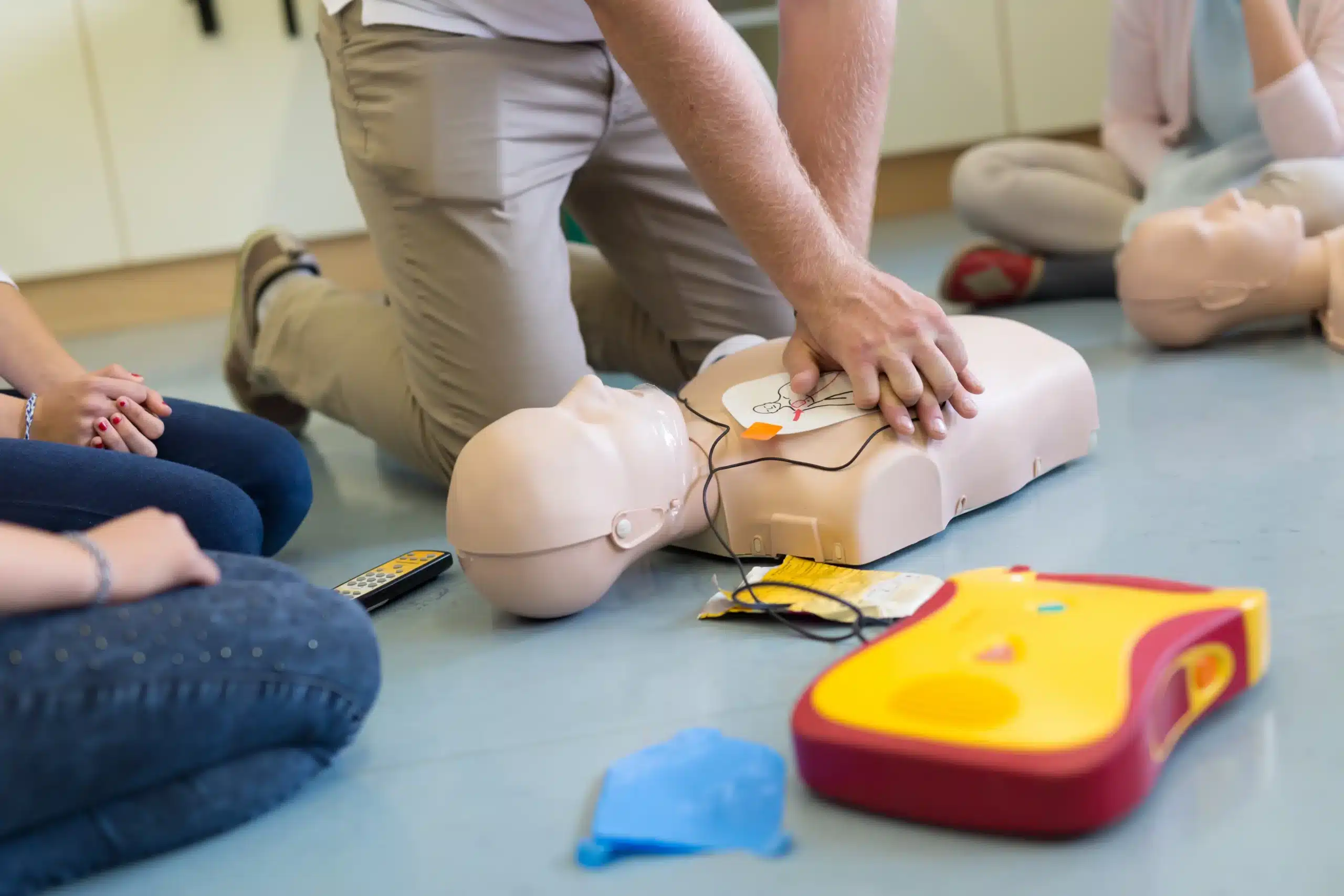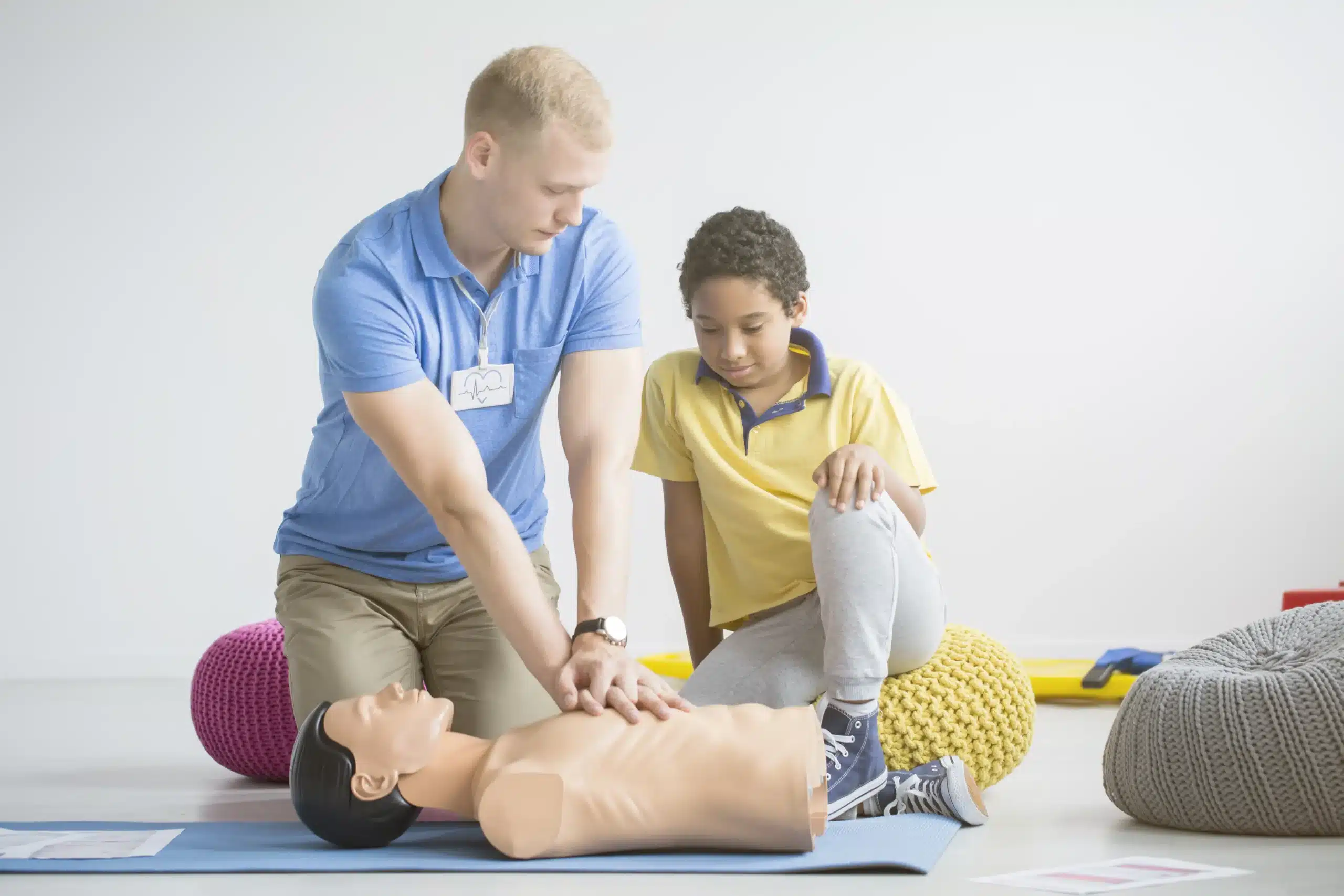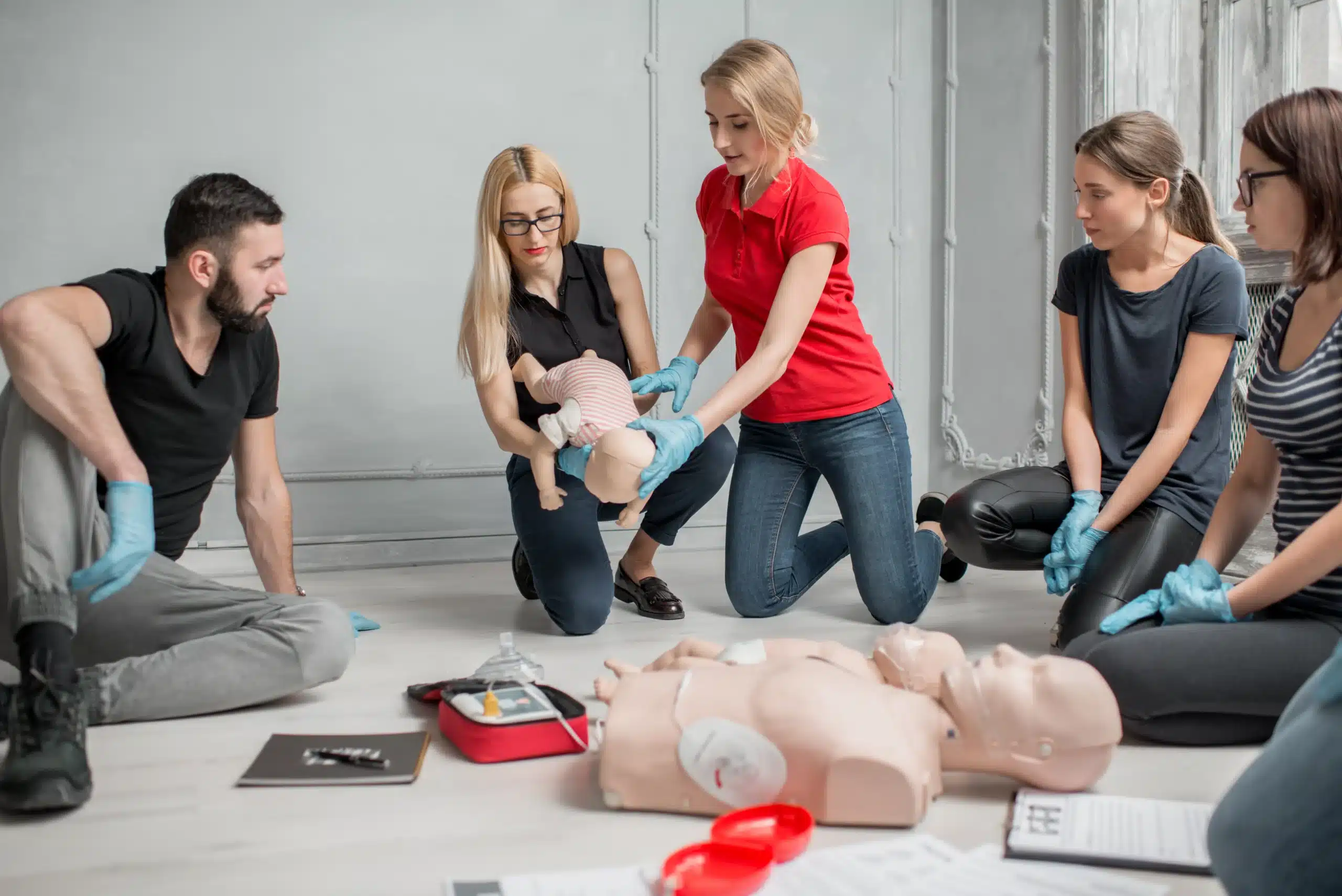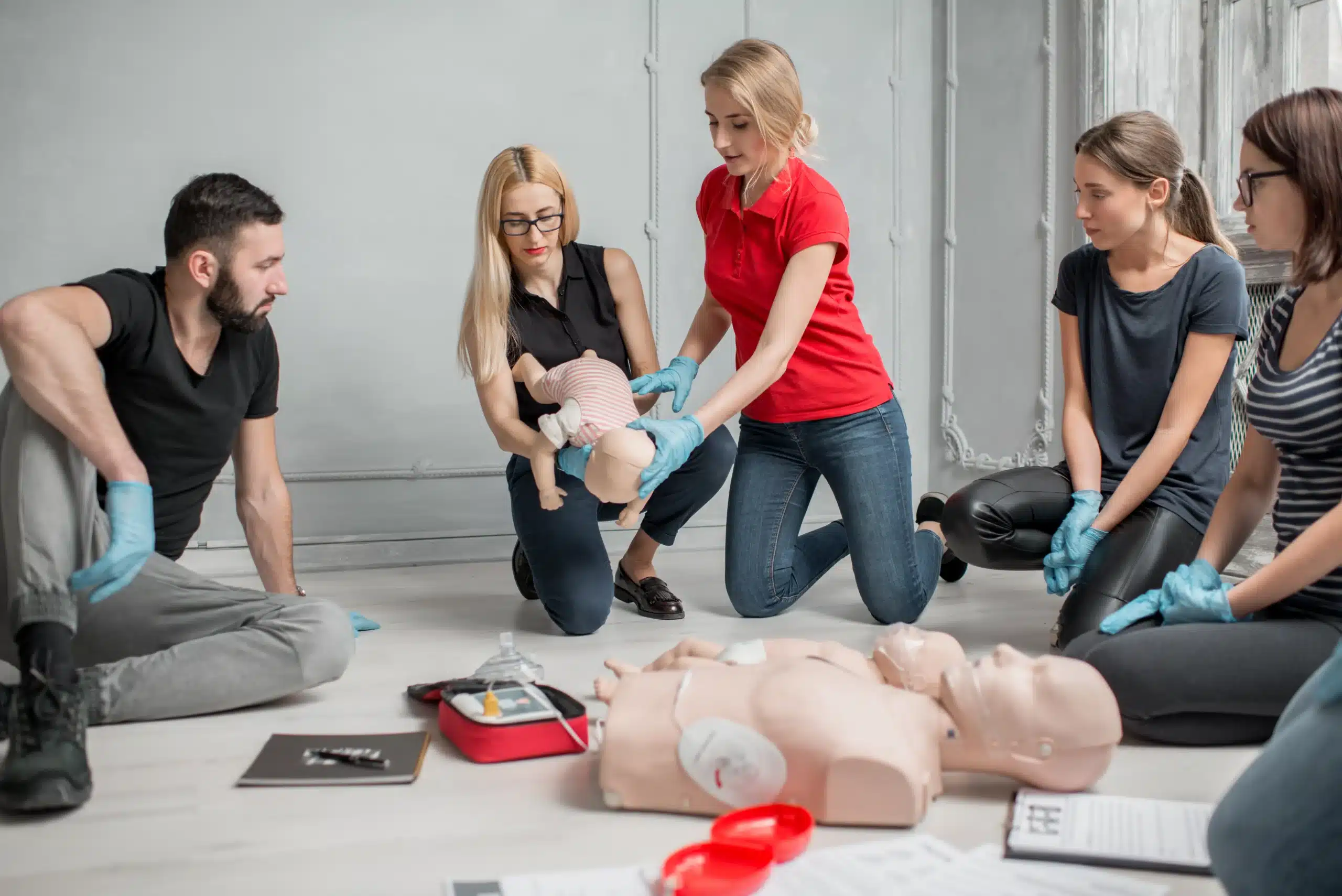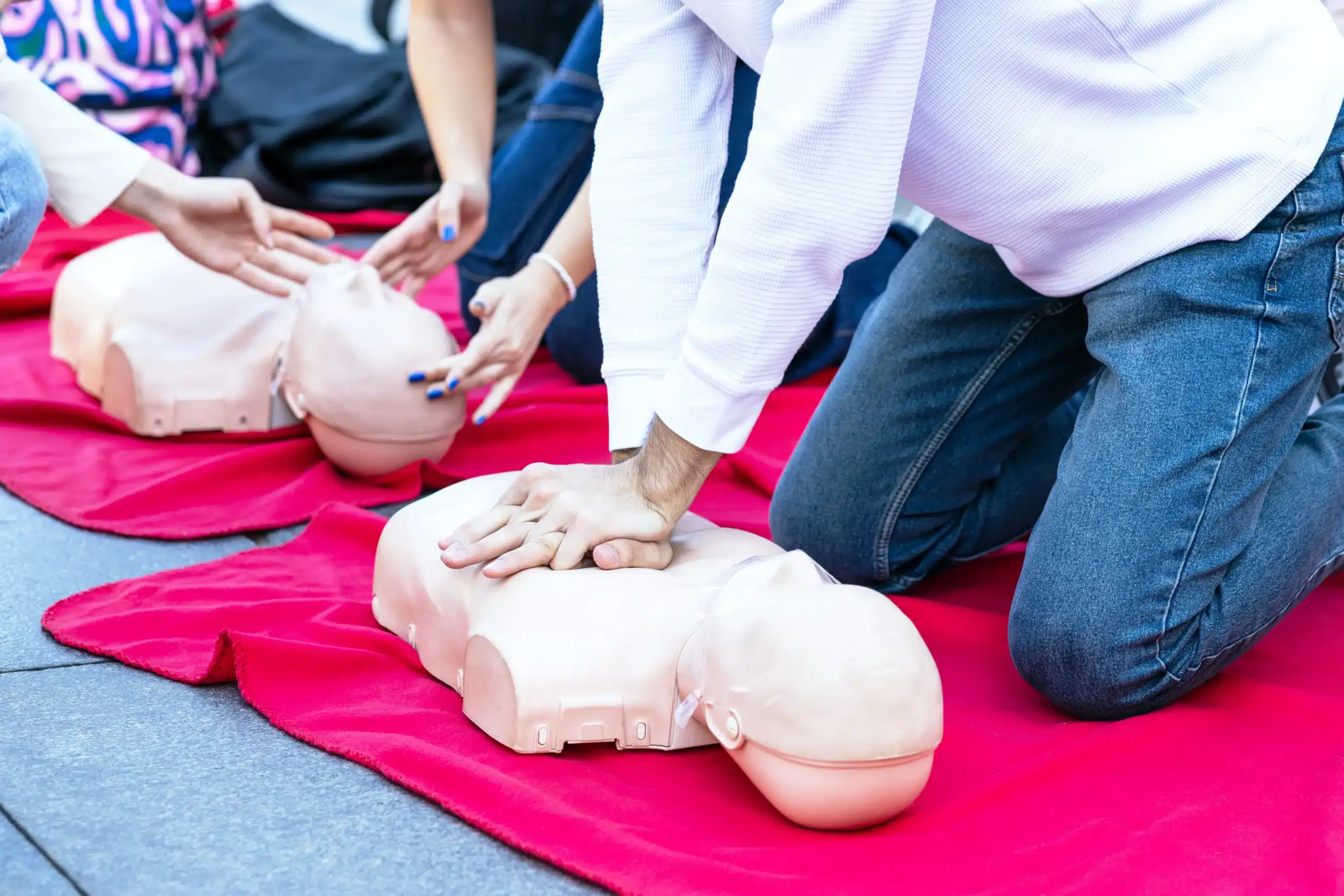Working with children is a rewarding experience, but it also comes with a unique set of responsibilities. As healthcare providers, we know that children aren’t just small adults; their physiological differences require specialized care, especially in emergencies. That’s where Pediatric Advanced Life Support (PALS) training comes in. If you’re a healthcare professional in Berkeley dedicated to providing the best possible care for young patients, PALS certification is more than just a credential—it’s a critical tool that empowers you to respond effectively in life-threatening situations. This comprehensive guide explores the importance of pediatric advanced life support in Berkeley, covering everything from essential skills and top training providers to course content, costs, and the long-term benefits of PALS certification. Let’s dive in and discover how PALS can enhance your skills and contribute to a safer community for Berkeley’s children.
Key Takeaways
- PALS certification provides advanced pediatric emergency skills: It goes beyond basic CPR, equipping healthcare providers to effectively manage life-threatening situations in infants and children. Look for AHA-certified courses.
- Choose a PALS course format that works for you: Blended learning options combine online self-paced study with in-person skills sessions and simulations, offering flexibility and practical experience.
- Stay up-to-date after earning your PALS certification: Maintain your skills and knowledge through renewal courses and continuing education to ensure you’re always prepared for pediatric emergencies.
What is Pediatric Advanced Life Support (PALS)?
Pediatric Advanced Life Support (PALS) is a specialized training program that equips healthcare providers with the skills to effectively manage pediatric emergencies. It goes beyond basic life support for children, covering advanced techniques for resuscitation and stabilization. PALS focuses on a systematic approach to assessment and intervention for critically ill infants and children. The program emphasizes early recognition and treatment of respiratory and circulatory problems, using evidence-based guidelines to improve outcomes. If you’re a healthcare provider working with children, PALS certification is essential.
Essential PALS Skills and Knowledge
PALS training covers a wide range of essential skills and knowledge. It builds upon foundational skills like CPR, AED use, and first aid, integrating them with advanced concepts in pediatric care. Participants learn to quickly assess a child’s condition, identify life-threatening issues, and provide appropriate interventions. The curriculum includes recognizing and managing respiratory distress, shock, cardiac arrest, and other critical conditions. PALS courses also emphasize effective teamwork and communication during emergencies. Through hands-on simulations and case studies, providers develop practical skills and critical thinking abilities to handle real-life pediatric emergencies.
Why PALS Matters in Berkeley
In Berkeley, a city known for its focus on family well-being, PALS certification is particularly important. For healthcare providers working with children in Berkeley, PALS is often a requirement. PALS-certified professionals are better prepared to respond to pediatric emergencies, potentially saving lives. Whether you work in a hospital, clinic, or other healthcare setting, PALS certification demonstrates your commitment to providing high-quality care. It also ensures you’re equipped to handle the unique challenges of pediatric emergencies, contributing to a safer community. Contact Safety Training Seminars to learn more about our PALS certification courses.
Top PALS Providers in Berkeley
Finding the right PALS provider is crucial for receiving high-quality training. Here are a few options to consider in Berkeley:
Safety Training Seminars
Safety Training Seminars offers AHA-certified PALS classes in Berkeley, along with other essential certifications like CPR, BLS, ACLS, and First Aid. They offer classes daily, accommodating various schedules with extended hours from 8 am to 10 pm, seven days a week. For added convenience, their Resuscitation Quality Improvement (RQI) program combines online learning with in-person skills sessions, a flexible option for busy professionals. Safety Training Seminars serves over 60 cities in Northern California, and their dedicated customer service team is available daily to answer any questions.
Berkeley CPR Classes
Berkeley CPR Classes provides daily American Heart Association courses, including PALS, at competitive prices. Their blended learning format combines online self-paced learning (3–4 hours) with a brief, 30-minute in-person skills session at their Berkeley testing site. This allows participants to learn the material conveniently before demonstrating their skills to receive their certification card.
CPR Care
CPR Care emphasizes the value of PALS training for healthcare professionals who work with children. They focus on how PALS equips providers with practical skills to manage pediatric emergencies effectively, ultimately improving outcomes for young patients. This emphasis on real-world application and high-quality care makes them a valuable resource.
American Heart Association
While not a training provider itself, the American Heart Association (AHA) sets the standard for PALS training. Their PALS program provides a specialized curriculum to equip healthcare providers with the knowledge and skills necessary to manage pediatric emergencies effectively. Understanding the AHA’s vital role in PALS certification helps you choose a provider committed to high-quality, evidence-based training.
PALS Course Structure and Content
PALS courses blend online learning with in-person skills sessions and simulations. This balanced approach helps you build a strong foundation of knowledge and practical skills. Let’s take a closer look at each component:
Classroom and Online Learning
Your PALS journey often begins with online coursework. This self-paced component typically takes three to four hours to complete and covers essential concepts and principles of pediatric advanced life support. You’ll learn about recognizing and responding to life-threatening emergencies in infants and children. This online portion prepares you for the crucial hands-on practice that follows and makes it easier to fit the training into your busy schedule. Register for a PALS course in Berkeley, CA, and start your online learning today.
Hands-on Practice and Simulations
After completing the online modules, you’ll move into hands-on training sessions. These sessions focus on practical application and skill development. You’ll work with experienced instructors and engage in realistic simulations of pediatric emergencies. These scenario-based learning experiences allow you to apply your knowledge in a safe and controlled environment. Instructors provide immediate feedback and guidance, helping you refine your techniques and build confidence. This hands-on practice is essential for mastering the skills needed to effectively manage real-life pediatric crises.
Assessment and Certification
After the online learning and hands-on practice, you’ll move on to the assessment phase. This typically involves a skills test, which takes about 30 minutes at a testing site. Successful completion leads to your PALS certification, and you’ll receive your certification card the same day. This certification is valid for two years, after which you’ll need to renew your certification to stay current with the latest guidelines and maintain your credentials. Staying up-to-date is crucial for healthcare professionals to ensure they’re always prepared to provide the best possible care.
PALS Certification: Cost and Value
Getting PALS certified is an investment in your career and the community. But naturally, you’ll want training that fits your budget. Let’s break down the costs and the long-term value of PALS certification.
Compare PALS Provider Prices
PALS courses in Berkeley, CA typically cost around $290 for initial certification and renewal. Comparing prices from different providers like Safety Training Seminars, Berkeley CPR Classes, and CPR Care is always a good idea. Don’t forget to ask about potential discounts or group rates.
Safety Training Seminars’ Low Price Guarantee
Safety Training Seminars offers a low price guarantee in Berkeley, matching any lower advertised price. This commitment to affordability ensures you’re getting the best possible deal. Check their course schedule for upcoming PALS classes in San Pablo, conveniently serving Richmond, Berkeley, and Oakland.
Long-Term Benefits of PALS
The value of PALS certification extends beyond the initial cost. For healthcare professionals working with children, PALS training is crucial. It equips you with the skills to handle pediatric emergencies, understanding the specific physiological differences between children and adults. Plus, maintaining your PALS certification is often a job requirement, making it a valuable asset for your career. It also provides the confidence to respond effectively in critical situations involving young patients.
PALS Class Schedules & Registration
Course Duration and Flexible Scheduling
PALS classes are designed to fit your busy schedule, whether you’re pursuing initial certification or renewal. The course blends online learning (allow 3–4 hours) with a hands-on skills test (about 30 minutes at our testing site). This blended format lets you learn the material at your own pace and then demonstrate your skills in person. Reviewing online videos before your skills test can increase your confidence. Our course calendar provides more information on CPR and First Aid class schedules and availability. We offer PALS training in over 60 cities in Northern California, making it convenient to find a location near you.
Register for PALS Classes
If you’re a healthcare provider working with children—doctors, nurses, paramedics, or similar roles—PALS certification is essential. It equips you with the specialized knowledge and skills to respond effectively in pediatric emergencies. Visit our website to find upcoming PALS class schedules and register for a session that fits your availability. We offer classes daily, with extended hours from 8 am to 10 pm, seven days a week. Our San Pablo location conveniently serves Richmond, Berkeley, and Oakland.
Same-Day Certification with Safety Training Seminars
At Safety Training Seminars, we value your time. That’s why we offer same-day PALS certification. You’ll receive your certification card immediately after successfully completing the course. Our PALS renewal classes include hands-on practice and scenario-based training, allowing you to refine your skills and build confidence in pediatric emergency situations. We also offer a low price guarantee. Our customer service team is available daily to answer any questions. Contact us to learn more.
Your PALS Training Experience
PALS certification isn’t just about checking a box; it’s about gaining the confidence and skills to handle pediatric emergencies effectively. Here’s what you can expect from a high-quality PALS training experience:
Course Materials and Equipment
Accredited American Heart Association PALS classes, like those offered by Safety Training Seminars, are designed to provide hands-on training and real-world scenarios. This prepares participants to handle pediatric emergencies. Our PALS courses utilize state-of-the-art simulation technology and offer an immersive learning experience that goes beyond the textbook. You’ll work with realistic medical equipment and practice techniques on advanced pediatric manikins, providing a practical understanding of the procedures.
Experienced Instructors & Feedback
Our PALS courses are led by experienced instructors who are passionate about pediatric care. You’ll engage in hands-on simulations and scenario-based learning, mimicking real-life crises. These practical exercises are facilitated by our instructors, who provide immediate feedback and guidance. This personalized approach enhances learning and builds confidence in making critical decisions under pressure. Find a class time that works for you.
Overcome PALS Training Challenges
We understand that healthcare providers have demanding schedules. One common challenge is balancing work with training. Our PALS certification classes in San Pablo offer flexible scheduling, including weekend and evening options, to accommodate busy professionals. The focus on simulations and real-life scenarios helps you develop the confidence to apply your skills in real-world emergencies. Contact us to discuss scheduling and find the best fit. We proudly serve Richmond, Berkeley, and Oakland.
Maintain Your PALS Certification
Earning your PALS certification is a significant achievement, but your journey doesn’t end there. Staying current with the latest guidelines is essential for providing the best possible pediatric care. Knowing how to maintain your PALS certification ensures your skills remain sharp and you’re prepared for any pediatric emergency.
Renewal Requirements
PALS certification is typically valid for two years. To maintain your credentials, you’ll need to complete a PALS renewal course before your current certification expires. This refresher course covers any updates to the guidelines and reinforces essential skills, ensuring you’re always ready to respond effectively.
Continuing Education
Beyond the required renewal course, ongoing learning is key to maintaining proficiency. Look for opportunities to expand your knowledge and refine your skills through workshops, online resources, and peer-to-peer learning. Consider attending specialized conferences and seminars that offer deep dives into specific aspects of pediatric care. These events can provide valuable insights into the latest developments in PALS protocols. You might also explore mentorship programs where experienced professionals can guide and support your continued development in PALS.
Stay Updated on Pediatric Care Guidelines
Pediatric care is constantly evolving, with new research and best practices emerging regularly. Even skills gained in a recent PALS course can become outdated. Make a commitment to staying informed about the latest advancements. Regularly review updates to the PALS guidelines from the American Heart Association and other reputable sources. This dedication to continuous learning ensures you’re always equipped to provide the highest quality care.
PALS Training’s Impact on Pediatric Care
PALS certification does more than just check a box; it equips healthcare providers with the skills and confidence to make a real difference in pediatric care. From improved emergency response times to better patient outcomes, the impact of PALS training is significant.
Improve Emergency Response Skills
In pediatric emergencies, seconds can matter. PALS training helps healthcare professionals develop the skills to assess and manage these critical situations effectively. It provides a systematic approach to pediatric assessment, ensuring quicker identification of respiratory distress, shock, and other life-threatening conditions. This rapid response can stabilize a child’s condition faster, minimizing the risk of long-term complications. PALS courses cover a range of interventions, from basic life support to advanced airway management, giving providers the tools they need to act decisively.
Build Confidence in Pediatric Emergencies
Facing a pediatric emergency can be overwhelming, even for seasoned healthcare providers. PALS training instills confidence by providing hands-on practice and simulated scenarios. These experiences allow participants to apply their knowledge in a safe environment, building their comfort level with pediatric-specific procedures and equipment. This increased confidence translates to more effective care during real emergencies, as providers can act swiftly and decisively under pressure. Knowing they have the training and skills to handle these situations empowers them to provide the best possible care for their young patients.
Positive Outcomes for Berkeley’s Young Patients
Ultimately, the goal of PALS training is to improve outcomes for children facing medical emergencies. By equipping healthcare providers with the latest evidence-based techniques, PALS helps ensure that young patients receive the highest quality care. Research suggests PALS training can lead to better survival rates and reduced long-term disabilities in children who experience cardiac arrest or other critical events. For Berkeley’s young patients, this means a greater chance of a full recovery and a healthier future. Investing in PALS training is an investment in the well-being of the community’s children.
Common PALS Training Concerns
It’s normal to have questions about PALS training, especially if you’re new to advanced life support. This section addresses some common concerns to help you make informed decisions about your training.
Who Needs PALS?
Pediatric Advanced Life Support (PALS) certification is essential for healthcare providers directly involved in pediatric care, such as emergency room physicians, critical care nurses, paramedics, and respiratory therapists. Anyone who might respond to a pediatric emergency should strongly consider PALS certification. It provides the specialized knowledge and skills to handle these high-stakes situations. Many hospitals and healthcare facilities require PALS certification for specific roles.
PALS Training Difficulty
One common concern is the perceived difficulty of PALS training. The course is intensive and requires a time commitment, covering topics from airway management and rhythm recognition to pharmacology and team dynamics. However, the training is designed to be manageable. Safety Training Seminars offers courses in over 60 Northern California cities, including San Pablo, serving Richmond, Berkeley, and Oakland. Our instructors use interactive lectures, hands-on simulations, and real-life case studies to make learning engaging and accessible. We also offer flexible course options to accommodate busy schedules.
PALS vs. Basic CPR
While both PALS and basic CPR teach life-saving techniques, they have different target audiences and cover different skills. Basic CPR training focuses on fundamental life support for adults, children, and infants—a valuable skill for everyone. PALS builds on this foundation, providing advanced skills specifically for pediatric emergencies. It explores the physiological differences between children and adults, requiring specialized techniques for airway management, medication, and cardiac support. If you work with infants and children, PALS is the appropriate and often necessary training.
Choose the Right PALS Program in Berkeley
Finding the right PALS program is crucial for healthcare providers who want to confidently and effectively respond to pediatric emergencies. With several options available in Berkeley, carefully consider factors like accreditation, course content, and post-certification support.
Selecting a PALS Provider
When selecting a PALS provider in Berkeley, look for a program that follows the latest American Heart Association (AHA) guidelines. AHA PALS certification is widely respected in the medical community and ensures your training aligns with current best practices. Verify that the provider offers both initial certification and renewal courses, so you can maintain your skills throughout your career.
Benefits of Safety Training Seminars
Safety Training Seminars offers AHA-certified PALS courses in Berkeley, providing the skills you need to respond to pediatric emergencies. We offer classes daily, from 8 am to 10 pm, seven days a week. This flexible schedule makes it easier to fit training into your busy life. Our PALS courses emphasize hands-on practice and simulations, giving you the confidence to apply your knowledge in real-world situations. We also offer other essential certifications, including CPR, BLS, ACLS, and First Aid, allowing you to consolidate your training needs with one provider. Check out our course calendar to explore available classes.
Post-Certification Resources and Support
Your learning journey doesn’t end after you receive your PALS certification. Staying up-to-date with the latest guidelines and advancements in pediatric care is essential. The AHA’s RQI program offers a convenient way to maintain your PALS certification and refresh your skills. Regular renewal ensures your skills remain sharp and you’re prepared to handle any pediatric emergency. Consider providers who offer resources and support beyond the initial certification, such as refresher courses or access to updated materials. You can learn more about our commitment to ongoing support on our website.
Related Articles
- AHA PALS Classes in San Pablo, CA – San Pablo CPR Classes
- CPR Certification in San Pablo: Your Comprehensive Guide – San Pablo CPR Classes
- ACLS Courses in Oakland: Your Complete Guide – San Pablo CPR Classes
- BLS Certification in Berkeley: Your Complete Guide – San Pablo CPR Classes
- ACLS Renewal in Oakland: Costs & Providers – San Pablo CPR Classes
Frequently Asked Questions
What are the key differences between PALS and basic CPR training?
Basic CPR teaches fundamental life-saving skills for adults, children, and infants, while PALS builds upon that foundation. PALS focuses specifically on pediatric emergencies, delving into the physiological differences between children and adults, and covering advanced techniques for airway management, medication administration, and cardiac support. If you work with infants and children, PALS provides the specialized knowledge and skills you need.
How can I fit PALS training into my already busy schedule?
Many PALS providers understand the demands on healthcare professionals and offer flexible course options. Blended learning formats combine online self-paced learning with shorter in-person skills sessions, allowing you to study the material when it’s convenient and then demonstrate your skills in a concentrated hands-on session. Look for providers offering weekend and evening classes to accommodate various schedules.
What can I expect during the hands-on portion of a PALS course?
The hands-on component is crucial for developing and refining your skills. Expect to work with experienced instructors and participate in realistic simulations of pediatric emergencies. You’ll use medical equipment and practice techniques on advanced pediatric manikins, gaining practical experience in a safe and controlled environment. Instructors provide immediate feedback, helping you build confidence and proficiency.
How much does PALS certification cost, and what is the renewal process?
PALS course costs vary by provider, so it’s wise to compare prices. Initial certification and renewal typically fall within a similar price range. Many providers offer a low price guarantee, ensuring you get the best value. Renewal usually involves completing a refresher course before your current certification expires, typically every two years. This helps you stay current with the latest guidelines and maintain your skills.
What if I struggle with certain aspects of the PALS training?
PALS courses are designed to be challenging but manageable. Experienced instructors use various teaching methods, including interactive lectures, hands-on simulations, and real-life case studies, to make the material engaging and accessible. If you’re struggling with specific concepts or skills, don’t hesitate to reach out to your instructor for additional guidance and support. They are there to help you succeed.


